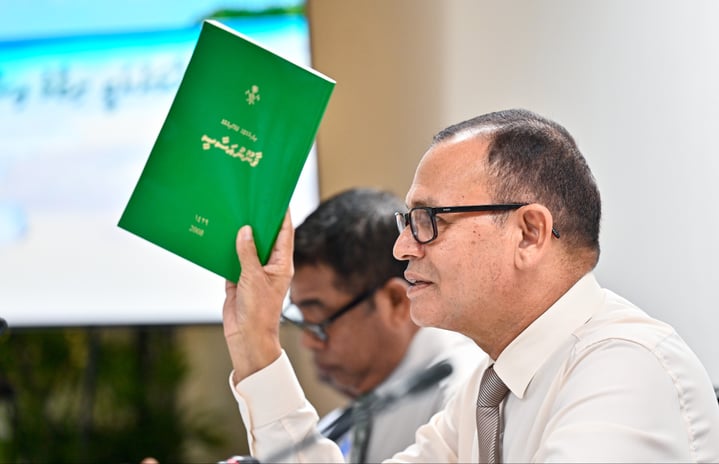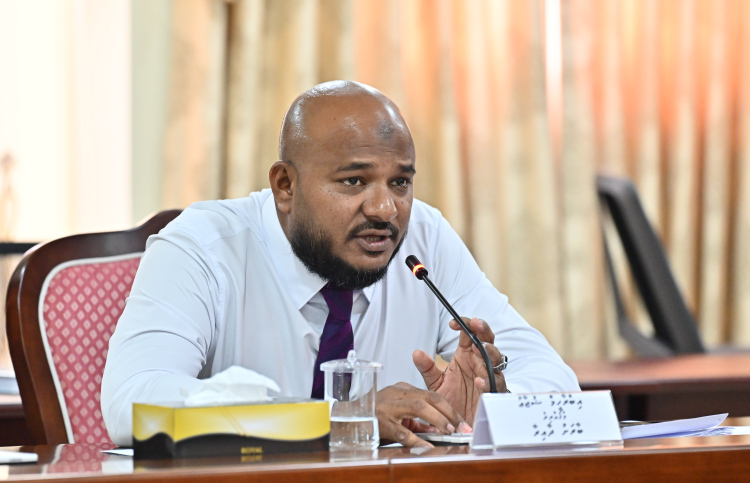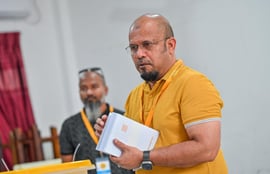Local Government Minister Adam Shareef has said that ensuring councils exercise their financial powers responsibly will further strengthen the decentralization system and bolster public confidence.
His remarks, made in a post on Wednesday, come amid heated debate over the amendment to the Decentralization Act passed by Parliament yesterday, which imposes new restrictions on the financial autonomy of local councils.
Minister Shareef defended the government’s commitment to decentralization, saying President Dr Mohamed Muizzu is actively working to empower councils through a range of reforms. These include allocating uninhabited islands to councils, engaging directly with council representatives during island visits, adopting policy proposals from councils, and restructuring development projects based on council feedback.
“These are the strong policies and efforts of the President to strengthen the decentralization system, truly empower the councils, and win the trust of the people,” Shareef said.
He also said that the reconstruction of 105 dilapidated council offices are an example of the President’s direct involvement in strengthening local governance.
“Increasing the financial power of councils, and ensuring they use that power responsibly, will strengthen the decentralization system and increase public trust,” he said.
Key provisions of the amended Decentralisation Act:
1. Councils in the final year of their term will require approval from the Ministry of Finance and the Local Government Authority (LGA) before undertaking key decisions, including:
- Hiring permanent or contract employees.
- Leasing or allocating land, lagoons or reefs under their jurisdiction.
2. Local government companies set up by councils can engage in economic activity, but with conditions:
- They cannot operate businesses that already exist in the local community.
- Activities must relate to structural development.
- Investments must not exceed MVR 10 million.
3. Councils will not pay rent to the state for land or buildings leased for essential public services, including:
- Land or lagoons leased for service provision.
- Rent for public-use council buildings.
4. Council accounts must be operated under a procedure set by the Ministry of Finance, which must also provide bank statements to councils upon request.
The opposition Maldivian Democratic Party (MDP) has criticized the amendments, with party chairperson Fayyaz Ismail urging President Muizzu to withdraw the bill. He noted that 56 councils had issued formal statements expressing concern.
“Tonight, for the sake of the country, I just call on President Muizzu not to pass the bill on councils. Don’t pass it. Think again. Put a stop to it,” Fayyaz said during the MDP’s national assembly meeting on Wednesday night.
The government, however, has denied claims that the reforms curtail council powers, accusing the opposition of misrepresenting the legislation. Baarah MP Ibrahim Shujau, speaking in parliament, said the bill ensures councils engage in business through local government companies, but only where it does not compete with existing private sector activity.
“The law says councils should not compete with local businesses, should limit investment to MVR 10 million, and focus on projects tied to island development,” he said.





